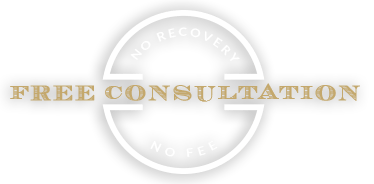Drunk Driving And Its Impact On New Jersey
August 4, 2016
If you live in New Jersey and have been involved in a car accident with a drunk driver, you’re not alone. You can seek compensation for the injuries you’ve suffered, just like these people may have done. In today’s article, we’ll go over some of the effects of drunk driving on New Jersey residents, the consequences involved, as well as how they impact your insurance.
Drunk and Impaired Driving: Get the Facts
In New Jersey, 1,816 people were killed in crashes involving a drunk driver between 2003 and 2013. Males are more likely to be involved in these crashes than females; data shows males were killed in 2.9 percent of cases and females in 0.9 percent. Nationally, 5.2 percent of men were involved in and killed in drunk driving accidents, while 1.5 percent of females were.
What may be more shocking is that, nationally, 1.9 percent of people admit to driving after they know they’ve had too much to drink. In New Jersey, 1.5 percent of people admitted to driving after drinking too much.
The following are some of the most noteworthy DUI/DWI statistics that have been released by Mothers Against Drunk Driving (MADD), the CDC, and the New Jersey State Police:
- In New Jersey, 118 out of 522 fatal car accidents in 2015 (or 22 percent) were attributed to drunk driving.
- In 2015, alcohol consumption was detected in roughly 20% of drivers who survived alcohol-related accidents and in 28% of drivers who were killed. This indicates that the great majority of drivers killed in accidents involving alcohol are the ones who were not alcohol-impaired
- Blood alcohol content (BAC) tests revealed that close to 80% of intoxicated drivers killed in collisions had BACs of 0.08 percent or higher.
- 33 out of the 51 fatalities caused by drunk drivers in accidents in 2015 were collisions with stationary objects.
- The most common fatal alcohol-impaired accidents involve pedestrian collisions (170 out of 522 fatal accidents in 2015).
- In New Jersey, state and county highways are the sites of the vast majority of fatal alcohol-related collisions. On New Jersey’s highways, there aren’t many deadly drunken driving collisions (32 fatal accidents in 2015).
- Drivers between the ages of 50 and 64 and in their twenties are most likely to be involved in fatal incidents involving alcohol. Teenage drivers make up a smaller but still significant portion of fatal drunk driving accidents (59 fatal accidents in 2015).
- The projected annual cost of drunk driving fatalities to New Jersey taxpayers is $992 million.
- A CDC research found that 1.5% of New Jersey drivers admitted to operating a vehicle after drinking too much at least once within the past month. This is a little less than the 1.9 percent national average.
Drunk and impaired driving are common throughout the rest of the country as well. Here are some nationwide and demographic statistics:
- Young adults between the ages of 21 and 25 are the most likely to drive under the influence.
- Around one-third of all convicted drunk drivers are repeat offenders.
- The cost of drunk driving accidents to taxpayers is $100 billion.
- Over 4 million American adults reportedly engaged in an estimated 112 million drunken driving episodes in 2010 alone, as reported by the US Department of Transportation.
- Only a small portion of intoxicated drivers get arrested, despite the high number of drunk driving incidents. In America, there are about 300,000 drunk driving accidents every day. Only 0.013% of these cases result in an arrest.
Negative Effects of Drunk Driving: How Does Alcohol Affect a Driver?
Drinking while driving impairs cognitive function and reactivity, which raises the possibility of an accident. Being caught might result in legal, financial, personal, and even professional repercussions for even just one drunk driving offense. We’ll go into the implications further below.
The Impact of Drunk Driving
If a drunk driver causes a collision that results in injuries or fatalities to others, they will have to deal with the fallout. The emotional toll this takes can sometimes be worse than the physical harm sustained.
However, intoxicated driving undoubtedly poses serious physical risks. Driving under the influence can result in collisions that cause paralysis, disfigurement, brain damage, and even fatalities.
Impaired driving is another common crime. Drunk drivers and those under the influence of drugs frequently incur hefty fines, lose their licenses, and have to pay more for insurance.
These are examples of typical penalties for a conviction of an offense linked to drunk driving:
- The majority of states suspend your license for a range of durations, sometimes for as long as a year. A license will often be revoked after several convictions.
- Even for a first violation, mandatory jail time, fees, and fines are required in several states.
- Your car may be required to have an ignition interlock device installed, which will stop you from driving if it detects alcohol.
- A single DUI conviction could result in job termination or other penalties (i.e., operating company vehicles).
- Convictions for drunk driving are almost always followed by higher insurance rates.
How Drinking and Driving can Impact Your Insurance
Punitive damages might be brought against you if you were found to be driving after drinking and caused an accident. Punitive damages may not be covered by your liability insurance in several areas, leaving you personally liable for them.
If you are convicted of a DWI or DUI, your insurance rates will likely rise significantly. The amount will vary depending on your location and insurance. According to ValuePenguin, the national median rise in premiums following a DUI was 86.5%, or 1.86 times. A document called an SR-22 may also be required to prove that you have auto liability insurance. If there is anything that can be done to mitigate this increase, you should discuss it with your agent.
How can you stop drinking and driving?
Always think things through and plan ahead. Here are some ways to prevent drinking and driving:
- Choose a designated driver at all times — whenever you go out.
- Don’t drink alcohol if you’re going out alone. Place an order for a non-alcoholic beverage like soda or water.
- Call a taxi or ride-sharing service if you’ve had a few drinks.
- Never get into a car with an intoxicated driver.
What Keeps Drunken Drivers Off the Roads?
Sobriety checkpoints are one helpful way to keep the roads safer. When police can stop vehicles briefly as they pass through the checkpoint, they have an opportunity to talk to the drivers and see if they are impaired. They can give a breath test if they believe the driver is intoxicated. Ignition interlock devices prevent drunk driving for those who have been caught and convicted in the past. These devices are highly effective at preventing repeat drunk driving offenses.
Of course, drunk driving laws are the major deterrent. Driving with a blood alcohol concentration of .08 or higher is illegal throughout the United States. Those who drive drunk can be arrested and charged; they face penalties like fines and time in prison.





